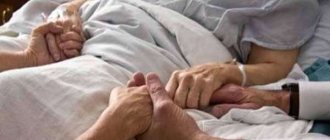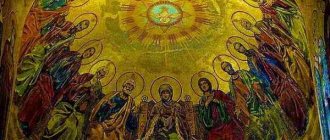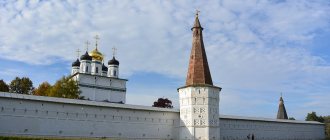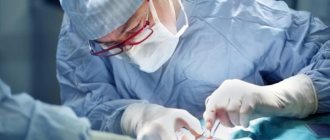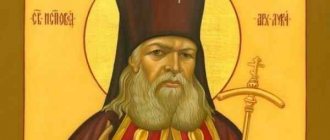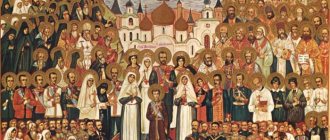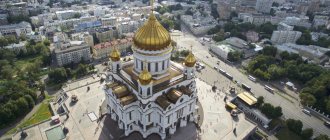Orthodox Life
His Beatitude Metropolitan Onuphry took part in the work.
The last meeting of the Holy Synod of the Russian Orthodox Church this year took place at the Patriarchal and Synodal residence in the Danilov Monastery in Moscow on December 29, 2022. The work was chaired by His Holiness Patriarch Kirill of Moscow and All Rus'. Several members of the Synod, including His Beatitude Metropolitan Onufry of Kiev and All Ukraine, took part in the meeting via video link.
By the decision of the Synod, 102 clergy of the Patriarchate of Alexandria from eight African countries were accepted into the jurisdiction of the Russian Orthodox Church, according to submitted petitions. The Patriarchal Exarchate of Africa was formed as part of the North African and South African dioceses.
The Synod relieved Abbot Peter (Eremeev) from the post of abbot of the Vysoko-Petrovsky stauropegial monastery with an expression of gratitude for the labors incurred. The cleric of the Moscow diocese, Hegumen Evfimy (Moiseev), was appointed the new abbot of the monastery.
According to the petition submitted, the Synod retired for health reasons Bishop Theophylact of Mytishchi, vicar of His Holiness the Patriarch of Moscow and All Rus', abbot of the St. Andrew's Stavropegic Monastery. Metropolitan Feognost of Kashira, Chairman of the Synodal Department for Monasteries and Monasticism, was appointed acting abbot of St. Andrew's Monastery.
The Synod relieved Bishop Leonid of Mozhaisk from the post of vicar of the Vvedensky stauropegial monastery of Optina Pustyn and appointed him to be vicar of the Kaluga diocese with the title “Tarussky”. Bishop Joseph of Tarusa with the title “Mozhaisk” was appointed as the new abbot of the monastery and vicar of the Patriarch of Moscow and All Rus'.
The Synod decided to be vicar of His Holiness the Patriarch of Moscow and All Rus' with the title “Lukhovitsky” to Abbot Euthymius (Moiseev), a clergyman of the Moscow diocese.
The Synod included the name of priest Mikhail Krasnotsvetov in the list of names of the Council of New Martyrs and Confessors of the Russian Church. The memory of Hieromartyr Mikhail Krasnotsvetov will be celebrated on October 12 / September 30.
Taking into account the ongoing difficult epidemic situation, the Synod postponed the events of the XXX International Christmas Educational Readings to the period from May 23 to May 25, 2022.
All decisions made at the meeting are reflected in the meeting journals.
Before the break in work, the members of the Synod congratulated His Holiness Patriarch Kirill on his 75th birthday. The head of the affairs of the Moscow Patriarchate, Metropolitan Dionysius of the Resurrection, read out the greeting address and presented His Holiness with the Patriarchal kukol.
The primate thanked everyone for their congratulations and asked to participate in his ministry “through labor, through sharing responsibility and, of course, through prayer.”
“I believe that the Lord does not abandon His Church; will not leave it at the current difficult stage of our historical life. Despite the fact that there are many signs indicating that the Church is not in for easy times - and this should not be the case if we look to the future in the light of Divine Revelation - we must calmly, with complete confidence, with trust in It is to the Lord and His holy will to continue our service, strengthening faith and church life in our people. When I say “in our people,” I mean the people of Holy Rus', all members of our Church,” said His Holiness Patriarch Kirill.
The Synod of the Russian Orthodox Church created chaos instead of reforms
The new Patriarchal Exarch in Minsk, as it were, “came out to the people.” Photo from the site www.church.by
The meeting of the Synod of the Russian Orthodox Church was held in person for the first time since the announcement of the coronavirus pandemic on August 25 at the Moscow St. Daniel Monastery. In just a few hours, the synods made many decisions at a feverish pace.
Pro-Moscow Exarchate
The main result of the meeting was the change of head of the Belarusian Orthodox Church. Metropolitan Pavel (Ponomarev), who has headed the exarchate since December 2013, will now oversee the Kuban Metropolis. Bishop Veniamin (Tupeco) of Borisov and Maryinogorsk was appointed the new patriarchal exarch. A native Belarusian, loyal to the current government of the republic and an opponent of autocephaly, he must cope with the situation in which Belarusian Orthodoxy now finds itself and which the “Russian” Ponomarev could not cope with. “The Holy Synod and His Holiness Patriarch Kirill of Moscow and All Rus' made a decision in order to preserve our Belarusian Orthodox Church intact, unified, so that in this difficult time for Belarus no one would reproach the exarchs for some inappropriate sentiments. But I never divided people for political reasons,” Ponomarev seemed to justify himself in his farewell speech in the Minsk Cathedral.
“The appointment of a native Belarusian to the Minsk department is a completely logical decision,” Roman Lunkin, head of the Center for the Study of Religion and Society at the Institute of Europe of the Russian Academy of Sciences, explained to NGR. “However, judging by the fact that Veniamin Tupeco does not have any political worldview, most likely he was put in the exarchate of the Moscow Patriarchate only so that he would not declare any position at all and would not do the political nonsense that Metropolitan Pavel managed to do.” “When, during the current protests, Pavel hesitated and behaved indecisively, and the church, which in Belarus is perceived as an extension of the state, suddenly began to criticize Lukashenko, which was an unpleasant surprise for him, he apparently insisted that the exarch be replaced,” noted in a conversation with NGR, first vice-president of the Center for Political Technologies Alexey Makarkin. – Veniamin in this sense will be more dependent on Lukashenko’s government. In the Moscow Patriarchate, for which the principle of control is also important - and Metropolitan Pavel could no longer control the situation and therefore lost the trust of both Lukashenko and the Russian Orthodox Church - they were forced to come to terms with the figure of Metropolitan Benjamin. Vertical is vertical, and control is more important.”
New broom for dissidents
Personnel changes also took place in Russian dioceses. Metropolitan Longin (Korchagin) was appointed to the Simbirsk diocese. Before that, he headed the Saratov Metropolis. The hierarch most likely lost his department in Saratov because of his Covid-dissidence. During the pandemic, he opposed the closure of churches and even condemned the authorities of the Saratov region, who decided to ban visiting churches on Easter Eve. “Longinus had a good diocese, where he sat firmly and was a fairly respected person. His transfer to the Simbirsk diocese became a kind of revenge for his behavior during the pandemic, when he openly stated that due to the forced closure of churches, the symphony of church and state was over,” Lunkin is sure.
Metropolitan Ignatius (Deputies), who ruled the Vologda diocese, was appointed to replace Korchagin. In June, he became the victim of a telephone prank by Ukrainian prankster Evgeniy Volnov, who introduced himself as an employee of the “department for combating sects and destructive cults.” During the ten-minute conversation, the Metropolitan complained about other hierarchs. “Unwittingly, the prankster showed that the church elite is dependent on secular power, and, of course, the patriarchy did not like this,” says Alexey Makarkin. The Vologda department will be occupied by Metropolitan Savva (Mikheev). He was released from the administration of the Tver diocese. Rumor has it that Savva did not find mutual understanding with the governor, sent the clergy he disliked to monasteries, and turned influential archpriests against him. He supported the translation of liturgical services into Russian, for which he received disapproval from conservatives. Before this, he spent several months as manager of the affairs of the Moscow Patriarchate. The church leadership “is dissatisfied with the style of leadership and the decisions that Metropolitan Savva made in Tver, his support of the Kochetkovites (supporters of the priest Georgy Kochetkov - “NGR”) and the subsequent leapfrog with shuffling of the conservative clergy,” Lunkin believes. “Confirmation is the appearance of a paper on verification of Kochetkov’s movement,” the expert adds.
“The transfer of Metropolitan Savva is certainly a demotion, but not fatal. This is not Siberia. Vologda is the oldest department. However, it is interesting that at one time it was the Vologda diocese that was ruled by one of the most liberal archpastors, Mikhail (Mudyugin). Nevertheless, Savva’s problem is connected not so much with the tangle of problems that he had in Tver, but with his dismissal from his post as a manager. It was then that his position began to weaken. At the same time, Savva was given a fairly prestigious metropolis, which many people dream of,” added Makarkin.
The Tver diocese is headed by Archbishop Ambrose (Ermakov) of Verei, who just a year ago was appointed rector of the Sretensky Theological Seminary and abbot of the Sretensky Monastery in Moscow. He heads the working group at the Synodal Biblical and Theological Commission. Not long ago, the group began to study the activities of the priest Georgy Kochetkov, from the support of whose followers Savva (Mikheev) suffered.
Shuffles in the system of spiritual education
By the decision of the Synod, the positions of rector of Sretensky Seminary and abbot of the monastery of the same name were separated for the first time. “To appoint Hieromonk John (Ludishchev), a resident of the Sretensky Monastery, as the vicar of the Sretensky Stavropegic Monastery. In addition to the obediences carried out, appoint Archpriest Maxim Kozlov as acting rector of the Sretensky Theological Seminary,” says the synodal journals. Hieromonk John (Ludishchev) is known in the church community as a man of Metropolitan Tikhon (Shevkunov). The latter, starting from 2012, was not only the abbot of the Sretensky monastery, but also the rector of the Sretensky Seminary. However, in 2022, Tikhon was suddenly sent to the Pskov department. In 2022, for a short time, it was Ludishchev who became acting. the abbot of the monastery, but very soon went to Shevkunov in Pechory.
The fate of the Sretensky Seminary was then entrusted first to Hieromonk Siluan (Nikitin), and a year later - to Ambrose (Ermakov). Archpriest Maxim Kozlov, being the head of the Educational Committee of the Russian Orthodox Church, a year ago put forward the idea of merging the Moscow Theological Academy (MDA) and Sretensky Seminary. However, nothing came of this project. Experts also note that the current division of posts is modeled after the Trinity-Sergius Lavra and the Moscow Theological Academy (MDA) located on its territory, which may mean a kind of increase in the status of Sretensky Seminary. “Despite the fact that complete revenge did not happen and Metropolitan Tikhon did not return to the seminary and monastery, nevertheless Maxim Kozlov is listed only as acting rector, so the question of who will be rector has been postponed for now. But taking into account the fact that the seminary is located on the territory of the monastery, and the monastery is again becoming “Tikhonov’s” and Shevkunov will again be able to come and serve in the Church of Confessors and Martyrs that he built, his influence on the seminary may grow. In any case, the seminarians who sympathize with Tikhon have now perked up,” noted Alexey Makarkin.
A reshuffle also took place in the MDA. From now on, its rector will not be Bishop Pitirim (Tvorogov), but Bishop Theodorit (Tikhonov). The castling was caused by the fact that Tvorogov failed to manage the academy during the pandemic. The students and teaching staff of the educational institution were significantly affected by the coronavirus, and Pitirim himself also became ill. “Vladyka Pitirim is a very active, charismatic person, including on the Internet,” explained Makarkin. - But he is not a theologian. And at the academy he was unable to place himself at the level of authority for professors and church intellectuals. When it was established as part of the reform proposed by Maxim Kozlov, they apparently wanted church intellectuals to be trained at the Sretensky Seminary, and pastors to be trained at the MDA. That is why they appointed a bishop with extensive pastoral experience. Moreover, in the situation with the Lavra during the pandemic, he revealed one secret that the Russian Orthodox Church preferred not to talk about. When the question arose about who was to blame for the outbreak of the pandemic in the monastery and academy, Pitirim, justifying himself, said that it was the parishioners who insisted that the monastery be opened. That is, he showed the other side of zealous parishioners, who often have extremely little respect for the hierarchy and the clergy.” “This is quite strongly rooted and widespread in the Russian tradition, but the Russian Orthodox Church prefers not to talk about it,” the expert emphasized.
Bishop Theodorit (Tikhonov) is tasked with trying to bring the academy out of crisis. It is noteworthy that before Tvorogov, Ambrose (Ermakov) was the rector of the MDA for a whole year. “The current reshuffles in the Moscow Theological Academy and Sretensky Seminary indicate that the way theological education is developing today does not satisfy Patriarch Kirill. These leading theological schools have been in a fever for several years, and so far the church cannot find the optimal solution to this problem,” Roman Lunkin is sure.
Not only the former rector of the MDA fell into disgrace, but also the governor of the Trinity-Sergius Lavra. The decision of the synods in the monastery after Patriarch Kirill became the main one, the now former abbot of the Donskoy Monastery, Bishop Thomas (Demchuk). In this post he replaced Bishop Paramon (Golubka). From the main monastery of the country, the hierarch went to head the Financial and Economic Administration (FED) of the patriarchy, most likely because he failed to close the doors of the monastery in time. “Of course, his departure from the Lavra is a consequence of the pandemic, but he did not lose the trust of the patriarch, and that is why the FHU was entrusted to him,” Makarkin believes.
Changes also occurred at the Ryazan Theological Seminary. The temporary performance of the duties of rector is entrusted to Metropolitan Mark (Golovkov) of Ryazan and Mikhailovsky. Previously, the educational institution was headed by Theodoret (Tikhonov). The chairman of the Synodal Department of Religious Education and Catechesis also changed. He will now be Bishop Evgeniy (Kulberg) of Bronnitsky, who came from the Urals, instead of Metropolitan of Rostov and Novocherkassk Mercury (Ivanov), who has now been appointed to the position of general director of the Sofrino art and production enterprise.
Retired Charisma
Almost like a bolt from the blue, Archpriest Dimitry Smirnov was relieved of his post as Chairman of the Patriarchal Commission on Family Issues, Protection of Motherhood and Childhood. He is notorious for his statements, for example, that girls should not go to school, but prepare for motherhood, and about unmarried wives as “free prostitutes.” He argued that in educational measures a child “can be punched in the face” and advocated the need to consecrate weapons of mass destruction. In May, Smirnov suffered from COVID-19, and after being discharged from the hospital, he announced that he was “going into seclusion” until the end of August. Now the commission will be headed by priest Feodor Lukyanov, a fighter against IVF and surrogacy.
For the first time, a woman appeared on the Supreme Church Council (SCC) - the head of the Legal Department of the Moscow Patriarchate, Abbess Ksenia (Chernega). The All-Russian Central Council was created on the initiative of Patriarch Kirill in 2011. The competence of the council includes coordinating the activities of synodal and other church-wide institutions, discussing current issues of church life, taking measures to implement the decisions of Local and Bishops' Councils, etc. “Indeed, before this, women were not part of the Supreme Church Council as permanent members,” Vakhtang Kipshidze, deputy chairman of the Synodal Department for Church Relations with Society and the Media, told TASS. “At the same time... The Supreme Church Council by its nature is not a structure that has ever been closed to the meaningful contribution of specialists, no matter their gender.”
The resolution “on cases of disclosure of confidential information by clergy or monastics serving in general church or diocesan structures” received a strong reaction on social networks. The resolution states that the disclosure of canonical or church-administrative information to third parties, including journalists, “without the blessing of the Patriarch of Moscow and All Rus' or the diocesan bishop by a clergy or monastic serving obedience in the general church or diocesan structure,” entails punishment. For clergy - prohibition from serving for up to 1 year, and if the same act is committed again - up to 3 years. For monastics - “excommunication from communion of the Holy Mysteries of Christ for a period of up to 1 year (if the same act is repeated - up to 3 years).”
“This year we have faced several campaigns against bishops. There were powerful leaks of documents and their publication on networks with such details that it was not always clear where reality ended and speculation began. The Synodal resolution is most likely a reaction to these campaigns,” explained Alexey Makarkin. However, according to the political scientist, bans will not solve the problem. “If you look at the experience of the Roman Catholic Church, then all participants in conclaves, under threat of sanctions, undertake not to disclose information about the process of electing the Pope. At the same time, there are always a lot of leaks from conclaves. Therefore, it is possible to tighten, threaten, and punish for the disclosure of secret information, but in the modern world it is impossible to maintain complete secrecy. Especially now. So punish - don’t punish, fight leaks - don’t fight, they will happen anyway,” concluded Makarkin.
“All the decisions of this Synod, probably for the first time, so publicly and openly stated the crisis of church governance that has developed during the decade of Patriarch Kirill’s leadership in various areas of the life of the Russian Orthodox Church,” summed up Roman Lunkin. The expert added that most of the personnel changes, in his opinion, “can be included in a number of both political and personal emotional decisions of the patriarch.” “There is an idea that this was a conservative Synod, that reactionaries prevailed at it, there was also an opinion that it strengthened the patriarchal vertical of power, but I would not rush to such conclusions,” added Alexei Makarkin. – This Synod can be called reactive, and all its decisions were reactive. There was no big, well-thought-out plan. There were a number of reactions to certain events or scandals.”
The Holy Synod at its regular meeting adopted a number of important personnel decisions
Discussion
Change Versions
17.06.2021
The Holy Synod of the Russian Orthodox Church, whose meeting took place on June 17, 2022 under the chairmanship of His Holiness Patriarch Kirill of Moscow and All Rus' in the Throne Hall of the Patriarchal and Synodal Residence in the Danilov Monastery in Moscow, made a number of important personnel decisions.
According to the Chairman of the Synodal Department for Relations of the Church with Society and the Media V.R. Legoyda, at a meeting of the Synod, a petition was heard from Metropolitan Lev of Novgorod and Old Russia (Tserpitsky) to retire him in connection with his 75th birthday. As a result of the discussion, the Holy Synod blessed Metropolitan Leo to continue governing the Novgorod diocese.
Having examined the state of affairs in the Sofrino art and production enterprise, members of the Holy Synod decided to relieve Metropolitan of Rostov and Novocherkassk Mercury (Ivanov) from the post of general director of the Sofrino enterprise.
“Archimandrite Elijah (Rudnev) has been appointed acting general director of Sofrino, while retaining his position as chairman of the Financial and Economic Department,” said the head of the Department for Church Relations with Society and the Media.
According to the representative of the Church, at the meeting that ended, the members of the Synod also had a judgment on the appointment of the chairman of the Church-Public Council under the Patriarch of Moscow and All Rus' for perpetuating the memory of the new martyrs and confessors of the Russian Church.
“The Holy Synod expressed gratitude to Metropolitan Yuvenaly (Poyarkov) for the labors incurred at the head of the above-mentioned Council. Metropolitan Pavel (Ponomarev) of Krutitsky and Kolomna has been appointed as the new chairman of the Church-Public Council for perpetuating the memory of the new martyrs and confessors of the Russian Church,” said V.R. Legoida.
Having heard the report of Bishop Silouan of Peterhof, Chairman of the Synodal Commission on Bioethics, presenting the composition of the said commission and the draft Regulations on it, the members of the Holy Synod decided to approve both the Regulations on the Synodal Commission on Bioethics and the proposed composition.
During the meeting of the Synod, the issue of appointing an acting rector of the Sretensky Theological Academy was also considered.
“Keeping in mind the high employment of Archpriest Maxim Kozlov as chairman of the Educational Committee of the Russian Orthodox Church, the Synod decided to relieve him from the post of acting rector of the Sretensky Theological Academy, expressing gratitude to Father Maxim for his work in this post,” noted V.R. Legoida.
“Archpriest Vadim Leonov, vice-rector for scientific and theological work at the Sretensky Academy, has been appointed acting rector of the Sretensky Theological Academy,” added the head of the Synodal Department.
In addition, in accordance with the submitted petition and with an expression of gratitude for the fruitful labors incurred, the Synod relieved Archpriest Mikhail Vakhrushev from the post of first deputy chairman of the Educational Committee of the Russian Orthodox Church.
“Hieromonk Apollinaris (Panin) has been appointed first deputy chairman of the Educational Committee,” said a representative of the Church.
“In connection with the request of Metropolitan Vladimir of Omsk and Tauride, the Holy Synod decided to appoint Archpriest Vasily Vivchar to the position of rector of the Omsk Theological Seminary. And Archpriest Mikhail Litvinko was appointed rector of the Ekaterinodar Theological Seminary in connection with the request of Metropolitan Gregory of Ekaterinodar and Kuban,” concluded V.R. Legoida.
Editing text from:
18.06.2021 20:03:54
Personnel revolution in the MP ROC. The eve of Operation Heavenly City?
The first part of the in-person meeting of the Holy Synod of the Russian Orthodox Church took place on August 21, 2022, during the stay of Patriarch Kirill of Moscow and All Rus' in Solovki, on the day when the memory of the transfer of the relics of Saints Zosima, Savvaty and Herman of Solovetsky is celebrated. But, apparently, no decisions were made at this time, and this part of the Synod meeting remained closed to everyone.
In the second part of the in-person and absentee meeting of the Holy Synod, so many personnel decisions and reshuffles in leadership positions were made that it cannot be called anything other than a personnel revolution in the MP ROC. But behind the scenes of what is happening in the shadows, a very important thing remains - the question of convening a Local Council of the Russian Orthodox Church to solve long-standing problems within the Church as a social organism, as well as the question of the ongoing “creeping revolution” within the MP of the Russian Orthodox Church. I propose to focus on the latter.
Has anyone noticed that the Charter of the Russian Orthodox Church changes every time with the arrival of a new Patriarch of Moscow and All Rus'? Those. in fact, the “general church constitution,” so to speak, is rewritten for each new Primate. I will refrain from commenting, because... This is completely open information.
“At the plenary meeting of the Holy Synod of the Russian Orthodox Church, on the initiative of Metropolitan of Tver and Kashin Mikhail (Kruglyakov), a vote was taken on the issue of resetting the terms of the post of primate for the current Patriarch of Moscow and All Rus' Kirill (Gundyaev). The decision was supported unanimously and was greeted with approval by the believers,” the website www.panorama.pub reported on March 10, 2020.
The same site reports that “According to the Charter of the Russian Orthodox Church, one person can hold the position of primate for no more than 2 consecutive ten-year terms. The second term of Patriarch Kirill, elected in 2009 at the Local Council of the Russian Orthodox Church, ends in December 2022. Thanks to the decision of the Synod, he will be able to run again for the highest church office in the country, which will help maintain stability in church affairs. Kirill himself, commenting on the decision of the Synod, called the question of the possibility of his participation in the next elections “not fundamental.”
Thus, changes were made to the Charter of the Moscow Patriarchate of the Russian Orthodox Church to the effect that the Primate of the Church is elected not for life, but for a certain period. Stop! Something similar recently happened among the Roman Catholics. Now Popes are also elected not for life, but for a specific term. It turns out that the Russian Orthodox Church is beginning to copy such serious changes from the Vatican?
And this copying began under Patriarch Pimen, by the way (the predecessor of Patriarch Alexy II - Author's note). Before the Local Council of 1988 (held in the year of the 1000th anniversary of the Baptism of Rus' - Author's note), there was no such phenomenon in the Russian Orthodox Church as the retirement of a bishop (bishop, archbishop, metropolitan) due to reaching the age of 80. This borrowing from the Roman Catholics occurred on the initiative of the then head of the DECR (Department for External Church Relations - a structure of the MP ROC, created on the initiative of the USSR state security agencies after the Great Patriotic War - Author's note), Metropolitan of Smolensk and Kaliningrad Kirill (Gundyaev). And Patriarch of Moscow and All Rus' Pimen (Izvekov) agreed with this. Now every ruling bishop, upon reaching the age of 80, must submit a petition to the Patriarchate for his retirement...
An exception to this rule is the manager of the Moscow diocese, Vladyka Yuvenaly (Poyarkov), Metropolitan of Krutitsky and Kolomna, who has held his position since 1977. He will turn 85 in September 2022. Twice he applied for retirement and twice was refused. A small “lyrical digression”: according to archival data from the KGB of the USSR, published on the initiative of the Supreme Soviet of Russia in the early 1990s, Juvenaly is listed as “agent Adamant”... Adamant is a precious metal mentioned in the Holy Scriptures. The mythical metal, which served as the material for the tools of the gods, is an ultra-strong and lightweight material...
The largest decision of the Synod was made “in the Belarusian direction.” Metropolitan Pavel, who was the Patriarchal Exarch of Belarus for several years, was sent to the vacant see in Krasnodar (the historical and ecclesiastical name is Ekaterinodar) after the death of Metropolitan Isidore of Ekaterinodar and Kuban (he also headed the Higher Church Court of the Russian Orthodox Church).
But there were no less serious decisions in other areas. Thus, Bishop Paramon, who served in this position for a little over a year and a half, ceased to be the vicar of the Trinity-Sergius Lavra. Bishop Thomas was appointed in his place, who also spent a short time as governor of the Donskoy Monastery (and before that, transferred from the Samara Metropolis, where he was the bishop of Syzran and Zhigulevsky. - Author's note).
I will leave aside the transfer of bishops (archbishops, metropolitans) from department to department. But I consider it necessary to dwell on the personality of one of the bishops, namely: Evgeny (Kulberg), who until recently was considered the right hand of Metropolitan Kirill (Nakonechny) of Yekaterinburg and Verkhoturye, being the Bishop of Nizhny Tagil and Nevyansk. Back in 2003, Vladyka Eugene, as reported by Orthodox patriotic Internet resources, took part in the pogrom of an exhibition organized jointly with Archpriest Alexander Shargunov. I am retelling from hearsay, so some details regarding the events of “bygone days” may be distorted or misunderstood...
Now Vladyka Eugene (Kulberg) is Bishop of Bronnitsky, vicar of the Patriarch of Moscow and All Rus', vicar of the Donskoy stauropegial monastery of the city of Moscow. Instead of Bishop Thomas sent to Sergiev Posad.
At the same time, Metropolitan Kirill of Yekaterinburg and Verkhoturye retained his position. And the scandal associated with the persecution for the confession of schema-abbot (schemamonk) Sergius (Romanov), confessor of the Sredneuralsky convent in honor of the icon of the Mother of God “Spreader of the Loaves,” seemed not to have been noticed by the clergy.
But did anyone notice that the 80-year-old Metropolitan of Ekaterinodar and Kuban Isidor, who recently died from a disease “caused by coronavirus infection” (according to the official version - Author's note), was still the chairman of the Supreme Church Court of the Russian Orthodox Church. The same court in which schema-abbot (schemamonk) Sergius (Romanov) could appeal the decision to deprive him of the priesthood. Coincidence? In addition, Vladyka Isidore turned 80 years old, which means he had to submit a petition for retirement...
On August 24, a representative of the Administration of the President of the Russian Federation arrived in the Sverdlovsk region. For the uninformed, I would like to note that the APRF is actually a special service that competes with the FSB of Russia. With the coming to power of V.V. Putin, he transferred many, if not all, members of the Ozero cooperative to this structure, i.e. veterans of intelligence and counterintelligence of the KGB of the USSR.
On August 26, the administration of the governor of the Sverdlovsk region was supposed to discuss the issue related to the vast lands on which the largest monastery in Russia is located - the Sredneuralsky convent. Allegedly, not all of these lands are registered “properly”... But here, as they say, “the dog is buried.”
Having exhausted all methods, they are preparing the ground for reprisals against Fr. Sergius (Romanov), people living in the monastery - nuns (whom Metropolitan Kirill is trying to transfer to the care of schema-archimandrite-ecumenist Abraham (Reidman)), workers and laborers, defenders of the monastery, students of the secondary school on the territory of the monastery - according to the program of the Russian Classical School named after K. D. Ushinsky.
The Ekaterinburg Metropolis declared that all the monastery lands belonged to it, while the schema-abbot (schemonk) Sergius (Romanov) made it clear that the monastery was built on the territory of private estates belonging to different persons...
So everything that is happening can be perceived as preparation for Operation Heavenly City?
I know a person who recently received a revelation from the Most Holy Theotokos and St. Seraphim of Sarov that at the end of November - beginning of December (i.e. at the beginning of the Nativity Fast - Author's note) an attempt would be made to storm the monastery.
With this publication I have completed the series of articles “Heavenly City”.

